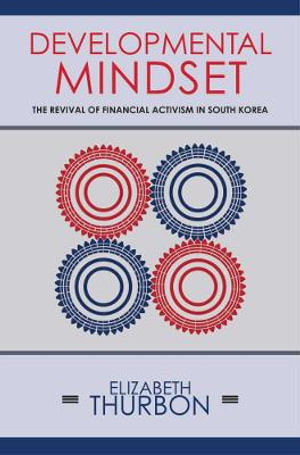
Developmental Mindset
The Revival of Financial Activism in South Korea
Hardcover | 1 April 2016
At a Glance
240 Pages
22.9 x 15.2 x 2.4
Hardcover
$218.90
or 4 interest-free payments of $54.73 with
orShips in 7 to 10 business days
The Asian financial crisis of 1997-1998 was supposed to be the death knell for the developmental state. The International Monetary Fund supplied emergency funds for shattered economies but demanded that states liberalize financial markets and withdraw from direct involvement in the economy. Financial liberalization was meant to spell the end of strategic industry policy and the state-directed "policy lending" it involved. Yet, largely unremarked by analysts, South Korea has since seen a striking revival of financial activism. Policy lending by state-owned development banks has returned the state to the core of the financial system. Korean development banks now account for one quarter of all loans and take the lead in providing low-cost finance to local manufacturing firms in strategic industries.
Elizabeth Thurbon argues that an ideational analysis can help explain this renewed financial activism. She demonstrates the presence of a "developmental mindset" on the part of political leaders and policy elites in Korea. This mindset involves shared ways of thinking about the purpose of finance and its relationship to the productive economy. The developmental mindset has a long history in Korea but is subject to the vicissitudes of political and economic circumstances. Thurbon traces the structural, institutional, political, and ideational factors that have strengthened and at times weakened the developmental consensus, culminating in the revival of financial activism in Korea. In doing so, Thurbon offers a novel defense of the developmental state idea and a new framework for investigating the emergence and evolution of developmental states. She also canvasses the implications of the Korean experience for wider debates concerning the future of financial activism in an era of financialization, energy insecurity, and climate change.
The Asian financial crisis of 1997-1998 was supposed to be the death knell for the developmental state. The International Monetary Fund supplied emergency funds for shattered economies but demanded that states liberalize financial markets and withdraw from direct involvement in the economy. Financial liberalization was meant to spell the end of strategic industry policy and the state-directed "policy lending" it involved. Yet, largely unremarked by analysts, South Korea has since seen a striking revival of financial activism. Policy lending by state-owned development banks has returned the state to the core of the financial system. Korean development banks now account for one quarter of all loans and take the lead in providing low-cost finance to local manufacturing firms in strategic industries.Elizabeth Thurbon argues that an ideational analysis can help explain this renewed financial activism. She demonstrates the presence of a "developmental mindset" on the part of political leaders and policy elites in Korea. This mindset involves shared ways of thinking about the purpose of finance and its relationship to the productive economy. The developmental mindset has a long history in Korea but is subject to the vicissitudes of political and economic circumstances. Thurbon traces the structural, institutional, political, and ideational factors that have strengthened and at times weakened the developmental consensus, culminating in the revival of financial activism in Korea. In doing so, Thurbon offers a novel defense of the developmental state idea and a new framework for investigating the emergence and evolution of developmental states. She also canvasses the implications of the Korean experience for wider debates concerning the future of financial activism in an era of financialization, energy insecurity, and climate change.
Industry Reviews
ISBN: 9781501702525
ISBN-10: 1501702521
Series: Cornell Studies in Money
Published: 1st April 2016
Format: Hardcover
Number of Pages: 240
Audience: Professional and Scholarly
Publisher: Cornell University Press
Country of Publication: US
Dimensions (cm): 22.9 x 15.2 x 2.4
Weight (kg): 0.5
Shipping
| Standard Shipping | Express Shipping | |
|---|---|---|
| Metro postcodes: | $9.99 | $14.95 |
| Regional postcodes: | $9.99 | $14.95 |
| Rural postcodes: | $9.99 | $14.95 |
Orders over $79.00 qualify for free shipping.
How to return your order
At Booktopia, we offer hassle-free returns in accordance with our returns policy. If you wish to return an item, please get in touch with Booktopia Customer Care.
Additional postage charges may be applicable.
Defective items
If there is a problem with any of the items received for your order then the Booktopia Customer Care team is ready to assist you.
For more info please visit our Help Centre.
You Can Find This Book In

Hillbilly Elegy
The Internationally Bestselling Memoir from Trump's Future Vice-President of the United States
Paperback
RRP $24.99
$21.75
OFF























